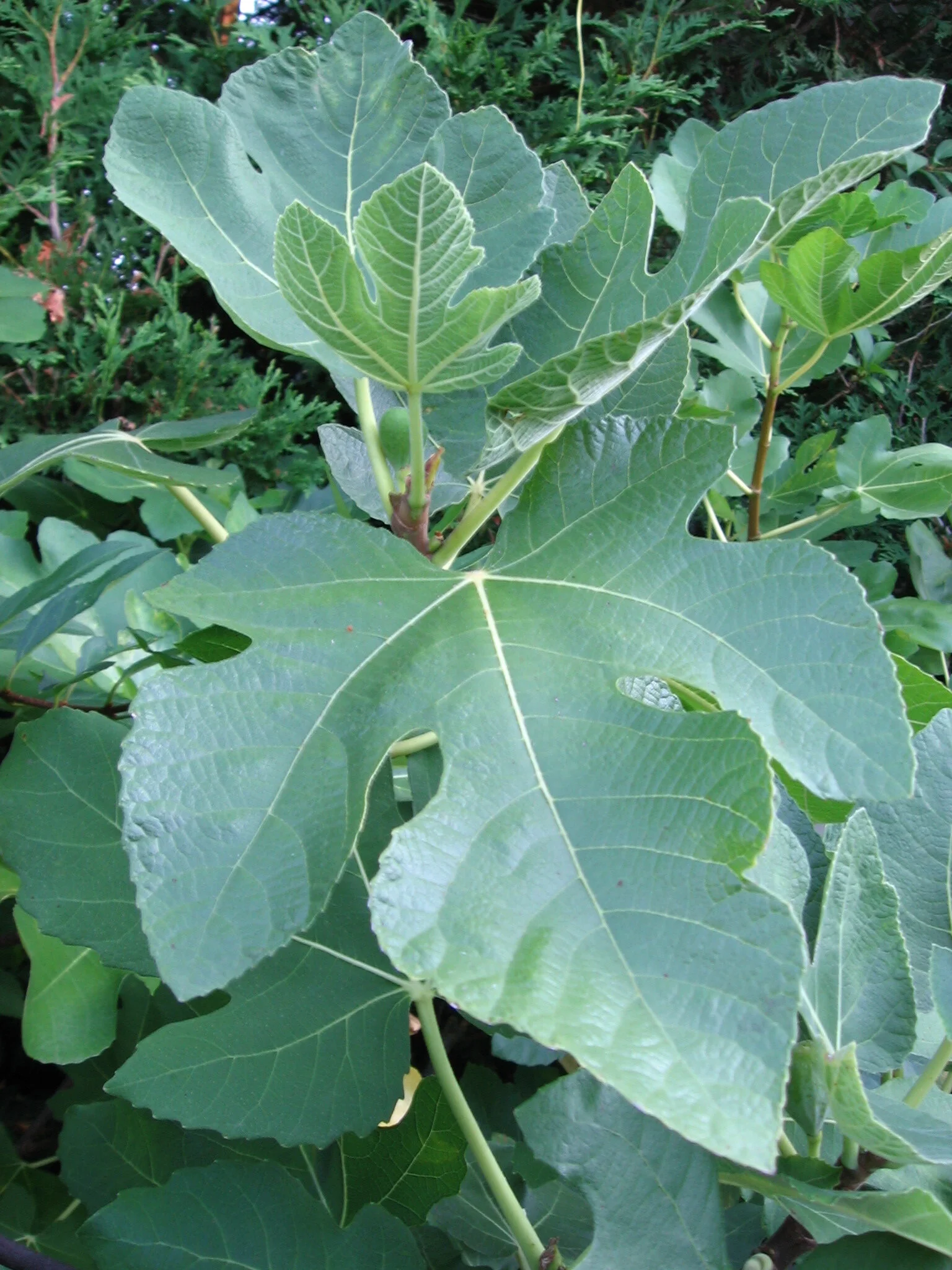How to Use Fig Leaves in the Kitchen
Chef David Salt explains how to cook with fig leaves. Salt’s restaurant is Drifter’s Solace.
Coconut. Almond. Green fig.
These are some of the flavours people use to describe what they taste when Chef David Salt serves something flavoured with fig leaves.
Salt cooked with fig leaves in London, England, where he had a ready source of fig leaves in a nearby churchyard.
Upon relocating to Toronto, he didn’t know where to find them.
And that’s when host Steven Biggs received an enquiry that read:
“I am looking for fig leaves to make dishes with at my restaurant (fig leaf ice cream, jelly, savoury sauces, custards etc.) Is there any possibility of getting some from you, before they fall for the winter?”
Salt got some fig leaves, and invited Biggs to the restaurant to taste his fig-leaf ice cream, fig-leaf cheese—and a fig leaf grappa!
Cooking with Fig Leaves
Salt says that the most classic method of using fig leaves is in the same way as banana leaves — as a wrap. When used as a wrap, they protect the enclosed meat or fish, keeping it moist. They also impart a unique flavour.
When cooking with fig leaves, the leaf is used to wrap food, or an infusion used to pull out the fig-leaf flavour.
The flavour is delicate. Salt finds it pairs well with light-flavoured meats or fish; and light-flavoured fruit such as strawberries and blueberries.
But he says to be creative: He’s paired fig leaves with hot chocolate, a strong taste, and found worked well.
His favourite dish made using fig leaves is ice cream.
For people using fig leaves for the first time, he explains that heat can help to bring out the flavour—but to avoid boiling, which results in a stewed-vegetable flavour. When time permits, a cold infusion is best.
Drifter’s Solace
Salt is gearing up to create fig-leaf flavoured foods this fall at his brand new chef’s-table style restaurant in Toronto. It’s called Drifter’s Solace.
Toronto has lots of big restaurants. Drifters Solace is at the opposite end of the spectrum: It’s small and personal, for groups of 6-8 people.


